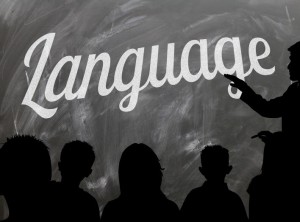 hen I walk through my hometown, what do I hear? Traffic noises, the sounds of nature, animals humming, barking, and chirping. And of course, I hear us. Us humans chattering, laughing, and arguing. It is languages I hear. Lately, there are also languages I have never heard before. Sometimes, I turn around in search of their source and try to understand what is being said. I fail most of the time, but every now and then I recognize a word because of its resemblance to a word I already know.
hen I walk through my hometown, what do I hear? Traffic noises, the sounds of nature, animals humming, barking, and chirping. And of course, I hear us. Us humans chattering, laughing, and arguing. It is languages I hear. Lately, there are also languages I have never heard before. Sometimes, I turn around in search of their source and try to understand what is being said. I fail most of the time, but every now and then I recognize a word because of its resemblance to a word I already know.
My neighbors in Germany mostly speak English, Polish, and Russian, but I sometimes hear Spanish, French, Dutch, Arabic, and Chinese as well. It seems that – slowly but surely – Germany is turning into a multinational country.  Of course, the United States has been the preferred place of immigration for people worldwide. The journalist Ben Blatt wrote an interesting article for Slate Magazine in 2014 named, “Tagalog in California, Cherokee in Arkansas: What language does your state speak?” His text and maps are based on the Census Bureau’s American Community Survey which looks at the languages spoken in the United States. For Americans, it might be interesting to look at this article; for students studying English, it’s a must. Today, learning a language means so much more than just practicing grammar and pronunciation. In order to really understand and be able to communicate with native speakers, it is far more important to discover cultural backgrounds and historical events. The maps Ben Blatt created make great visual tools for the language classroom and might help teachers to get (and retain!) their students’ attention. Which states speak mostly Spanish? Or German? And Why? Just follow the link and see for yourself – it’s worth a try!
Of course, the United States has been the preferred place of immigration for people worldwide. The journalist Ben Blatt wrote an interesting article for Slate Magazine in 2014 named, “Tagalog in California, Cherokee in Arkansas: What language does your state speak?” His text and maps are based on the Census Bureau’s American Community Survey which looks at the languages spoken in the United States. For Americans, it might be interesting to look at this article; for students studying English, it’s a must. Today, learning a language means so much more than just practicing grammar and pronunciation. In order to really understand and be able to communicate with native speakers, it is far more important to discover cultural backgrounds and historical events. The maps Ben Blatt created make great visual tools for the language classroom and might help teachers to get (and retain!) their students’ attention. Which states speak mostly Spanish? Or German? And Why? Just follow the link and see for yourself – it’s worth a try!
15,232 Total Views, 2 Views Today






